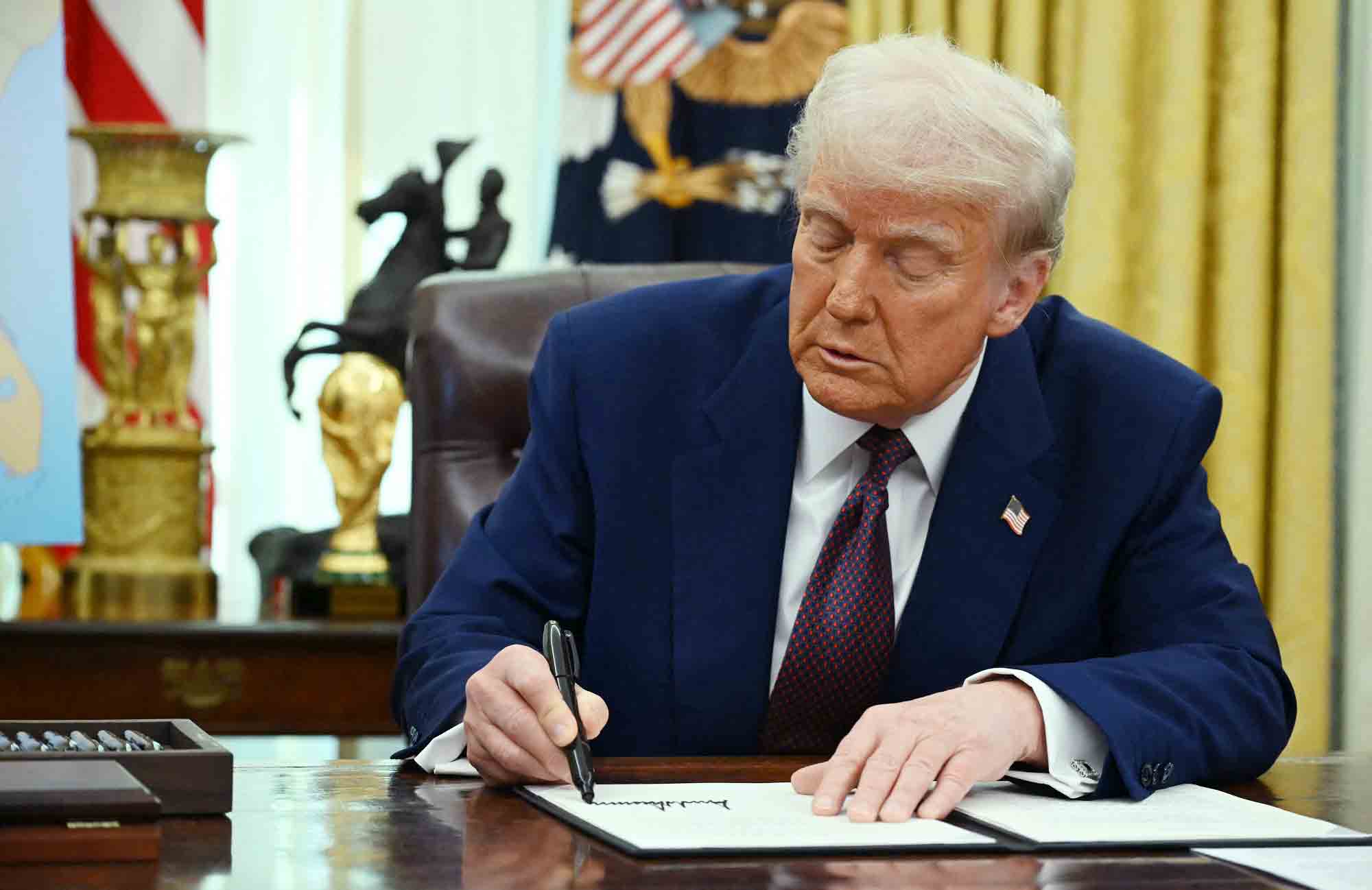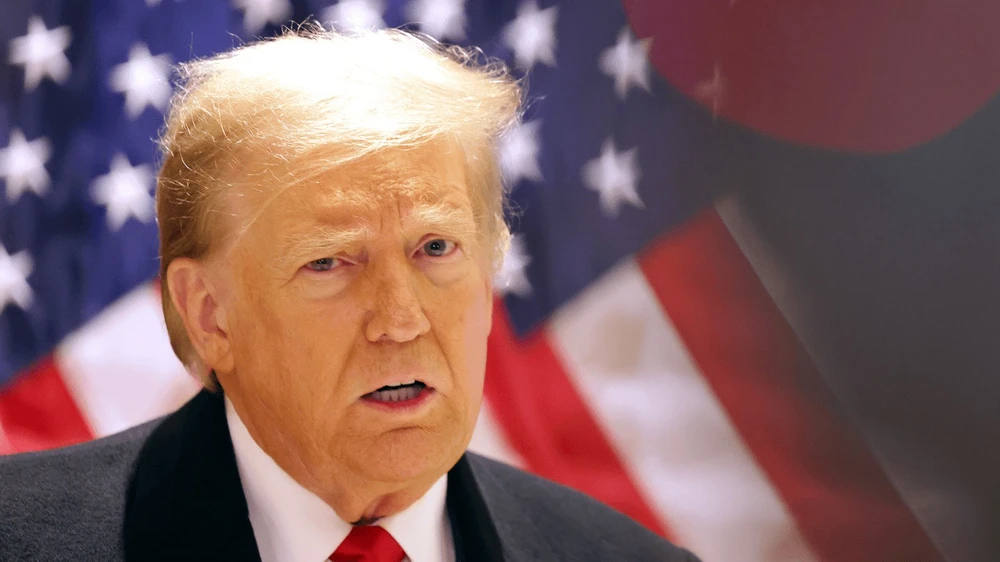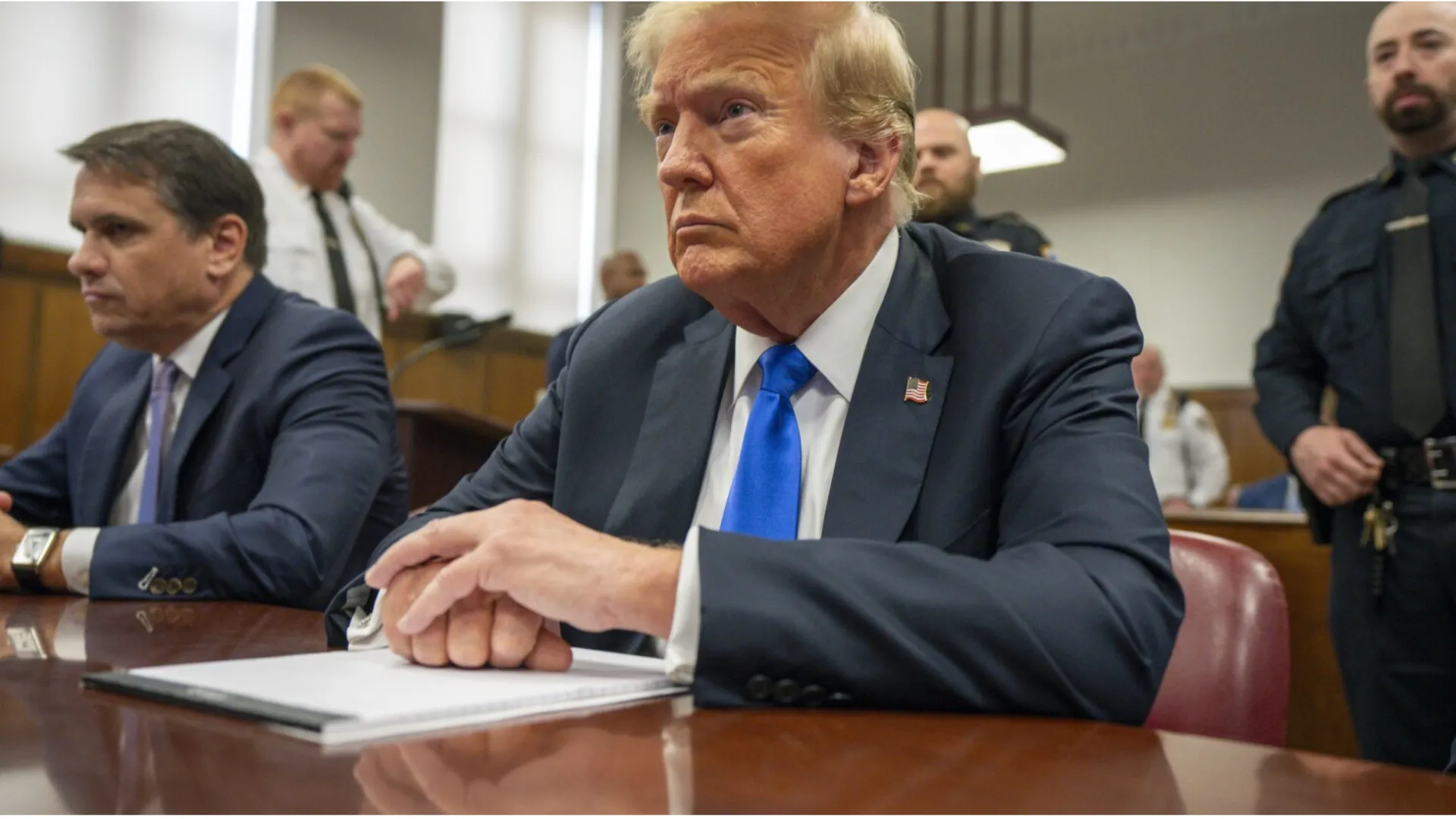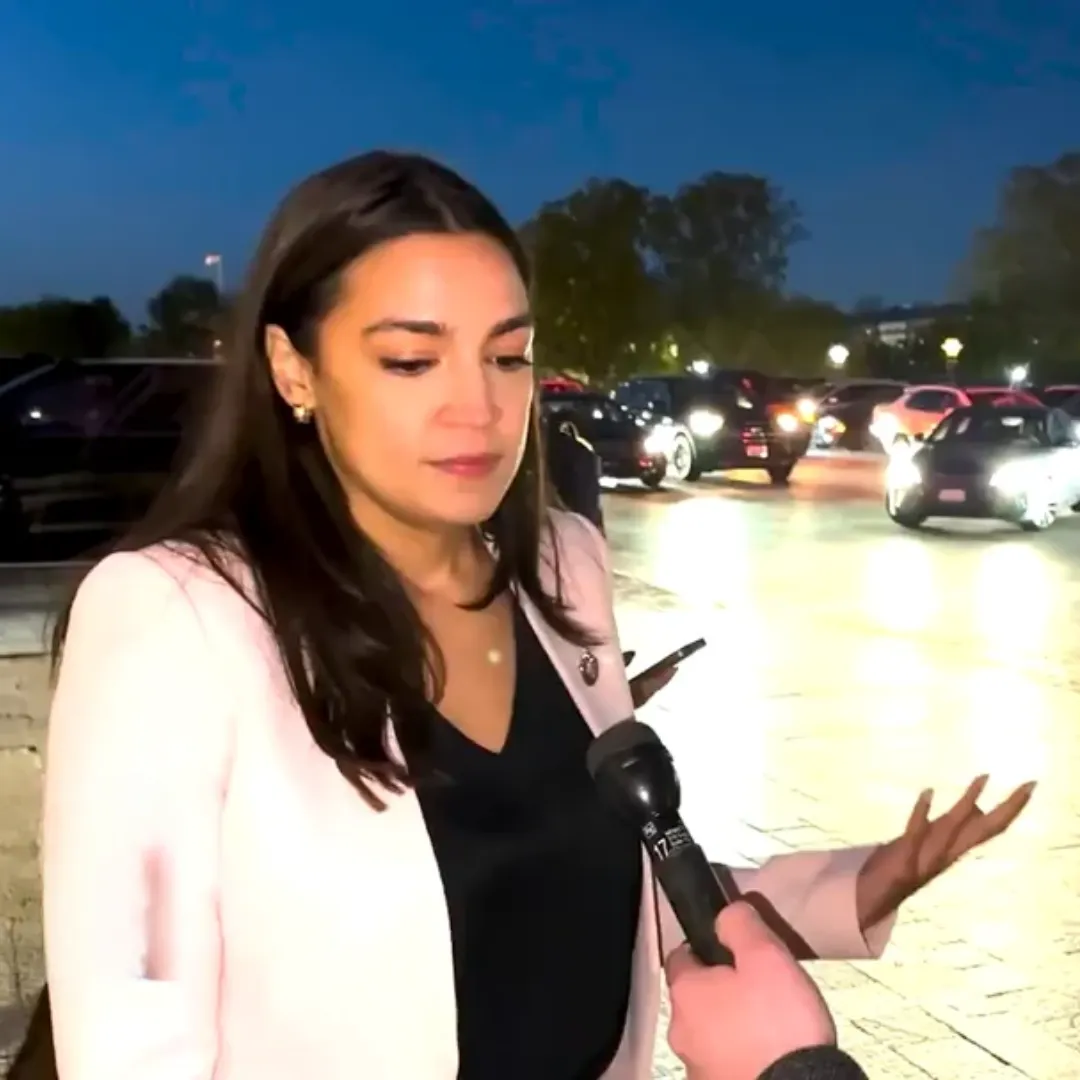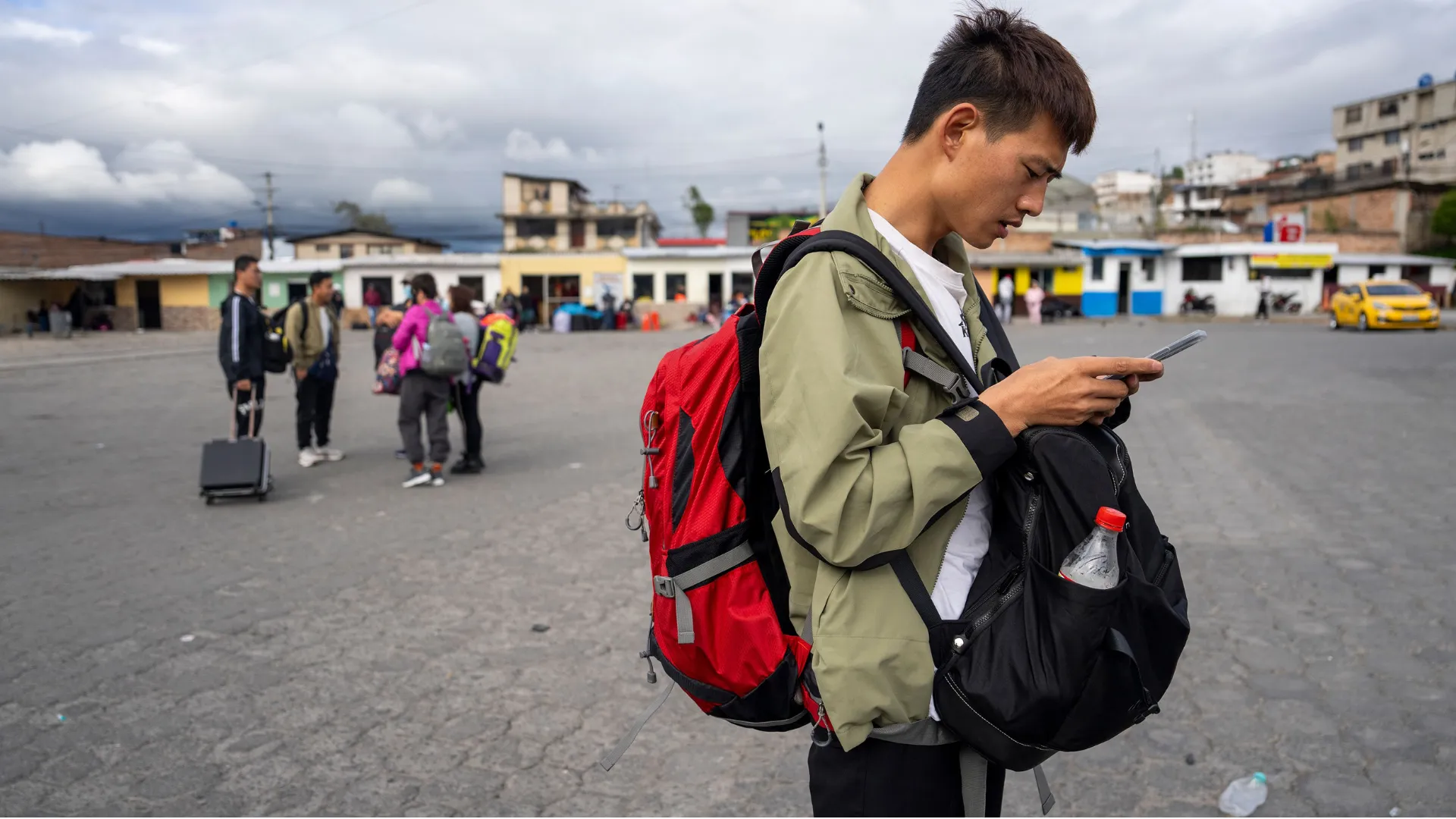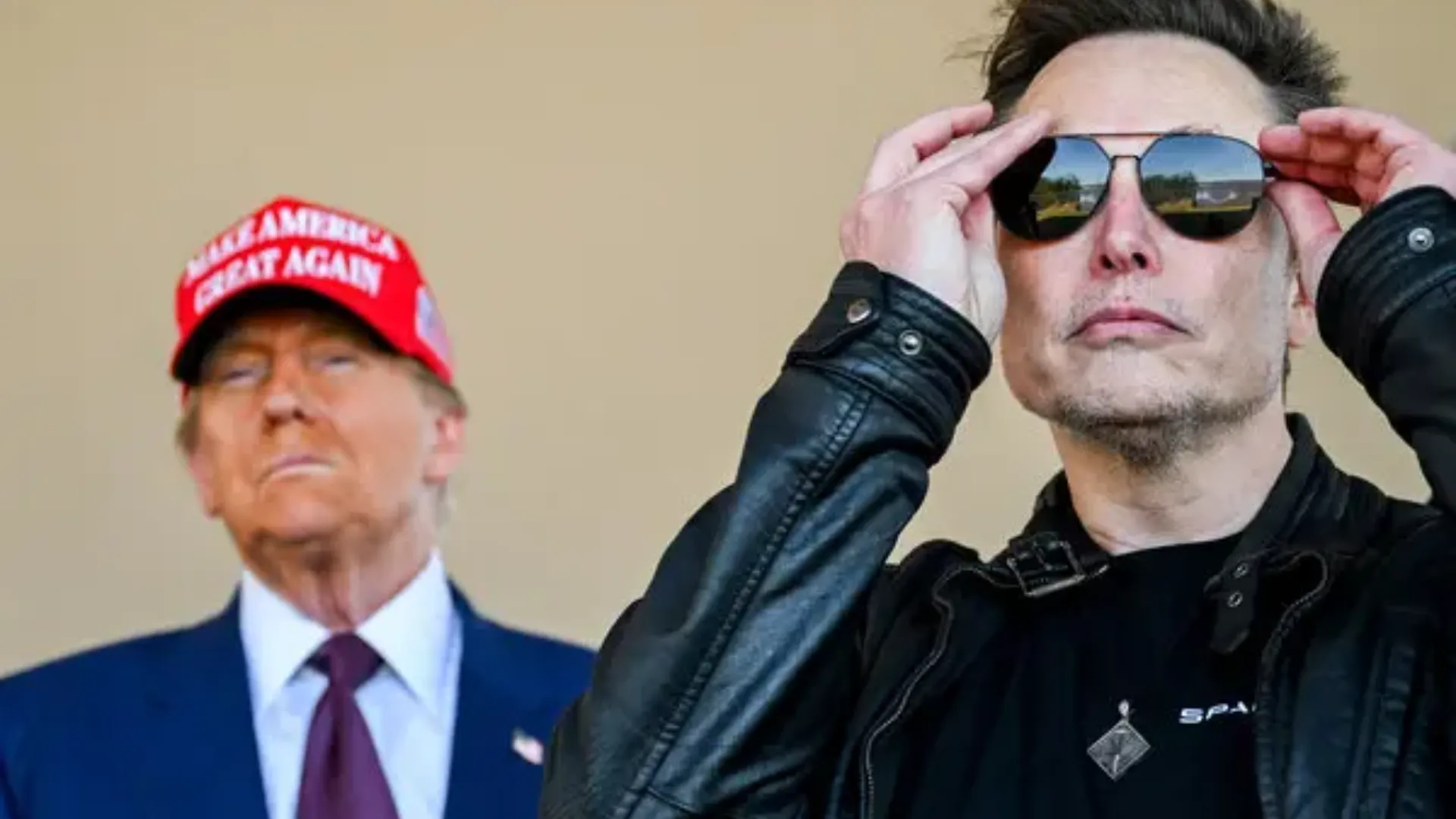
Actress, comedian, and former “Daily Show” correspondent Olivia Munn returned to her roots on Comedy Central this week — and brought a flamethrower to President Donald Trump’s newest economic policy.
Her target? The sweeping trade tariffs recently imposed by the White House, which have sparked chaos in global markets and confusion at home.
In a sketch that quickly went viral, Munn skewered the President’s erratic approach to international trade, mocking everything from the economic logic behind the tariffs to the deeper motivations she suspects are really driving the policy.
“Trump knows exactly what he’s doing,” Munn deadpanned, seated across from guest host Desi Lydic. “He put tariffs that destroyed the global economy, so then he took them off, and now it’s only mostly destroyed.”
Cue audience laughter — and the beginning of a satirical economic masterclass that was as cutting as it was comedic.
Munn’s reappearance comes just days after President Trump announced a new round of tariffs, including a 145% rate on Chinese imports. The move, part of what the White House described as a “strategic economic defense maneuver,” was met with confusion from economists, who struggled to understand how the plan would reduce inflation or bolster trade competitiveness.
Markets, rattled by the initial announcement, briefly rebounded after the administration walked back some details. A 90-day pause was granted to all nations except China.
Then came the contradictory statements, executive walk-backs, and press briefings that left analysts scratching their heads — or slamming them against spreadsheets.
Into this economic mayhem stepped Olivia Munn, playing the role of sharp-witted explainer with the edge of someone who has truly had enough.
“Now, to avoid tariffs coming back, other countries will cut deals with us for better trade terms, and our deficit drops to zero. Problem solved,” Munn said with faux optimism.
“So then we drop all the tariffs?” Lydic asked innocently.
“No, b---h,” Munn snapped, “Then we hit them even harder — 400 percent tariffs. We bomb their factories. We catch those penguins on that island and we eat them. Then the other countries will really come begging.”
The audience roared as Munn described a dystopian trade fantasy in which global diplomacy is replaced with economic siege warfare, environmental plundering, and a bizarre fixation on penguins.
Munn didn’t stop there. In one of the sketch’s more surreal moments, she outlined the spoils of war America could reap under this new trade doctrine.
“Ikea furniture comes assembled. Honda Accords, trunks full of Nike sneakers. We’ll get to pee on their currency while they watch. Then we won,” Munn said with a smirk.
She went on to describe a vision of trade war escalation that was so absurd, it circled back to frighteningly plausible — in part because of how chaotic and incoherent the administration’s policy rollouts have become.
“Then 4 billion percent tariffs,” she added, arms flailing for dramatic effect. “You’re in our house now. The new iPhone? Three dollars. Nike sneakers come with a Honda Accord.”
And just when the audience thought the sketch had reached its peak, Munn dropped the line that would become the quote of the night:
“Then we pee on their currency again. They’re not even watching — it’s just the only way we can pee anymore.”
While the sketch was loaded with over-the-top visuals and jokes, it struck a nerve because of how closely it mirrored the confusion surrounding real White House policy.
Just last week, financial markets plunged following Trump’s tariff announcement. The administration later tried to clarify that many of the new tariffs would be delayed or reduced — except, notably, those targeting Chinese exports.
The result? Volatility in global trade relations, renewed concerns about inflation, and growing skepticism among America’s international partners.
Economists warn that a sustained tariff war could exacerbate supply chain issues, raise consumer prices, and potentially lead to retaliatory measures from countries already frustrated with Washington’s unpredictability.
None of that seems to concern the President, however. On Tuesday, he told House Republicans that other countries were “calling me up kissing my ass.”
Munn, as always, was ready with a zinger: “He’s just a boy, standing in front of the world, asking to have his ass kissed.”
The sketch took a sharp emotional turn when Munn and Lydic moved beyond the policy and into the psychology. What’s really driving all this trade saber-rattling?
“How does any of this make up the trade deficit?” Lydic asked sincerely.
Munn’s answer was a gut punch hidden inside a joke.
“It’s not the trade deficit,” she said. “This is all to make up for Donald Trump’s enormous deficit of attention and love.”
The room grew quiet for a moment — and then burst into laughter again, tinged this time with a layer of sympathy, or perhaps disbelief.
The final moments of the sketch painted Trump less as a geopolitical strategist and more as an emotionally fragile man locked in a never-ending search for validation.
“And once the world fills the aching hole in his heart, the tariffs will end,” Munn said.
“But that will never happen,” Lydic replied. “There’s not enough attention in the world to make him feel like a human again.”
“Exactly, b---h,” Munn confirmed.
What made Munn’s performance resonate wasn’t just her comedic timing — it was the eerie plausibility of the scenario she mocked. In a world where policies are increasingly driven by ego and theater, Munn’s absurdist version of the future didn’t feel all that distant.
The segment quickly trended on social media, with hashtags like #TradeWarTheMusical, #PenguinTariffs, and #PeeOnCurrency circulating within hours of airing.
Critics praised Munn for using satire to highlight the instability and absurdity of current U.S. economic policy.
“She turned a complicated issue into a piece of performance art,” said one television critic. “But make no mistake: the subtext was dead serious. She’s not just making jokes — she’s warning us.”
Munn’s return to “The Daily Show” was met with enthusiasm from longtime fans who remember her sharp, fearless commentary during her correspondent days. Now older, wiser, and with several blockbuster roles under her belt, Munn seemed to channel a blend of rage and humor that captured the national mood.
In the post-sketch interview, she reflected on her return to political comedy.
“Honestly, I didn’t think I’d be back here. But with everything going on, it felt like the right time to say something — even if that something involves penguins and peeing on foreign currencies,” she laughed.
She also emphasized the importance of using comedy to stay sane in chaotic times.
“If we can’t laugh at this madness, it’ll break us,” Munn said. “But laughter can also wake people up. Sometimes you have to joke your way into the truth.”
As the real trade policies continue to evolve — or unravel — it’s unclear how far the White House will go in its economic brinkmanship. But what is clear is that voices like Munn’s are playing an important role in holding power to account, even if through comedy.
Munn didn’t just return to make people laugh. She came back to remind viewers that economic decisions aren’t just about numbers and charts — they’re about power, emotion, and sometimes, insecurity.
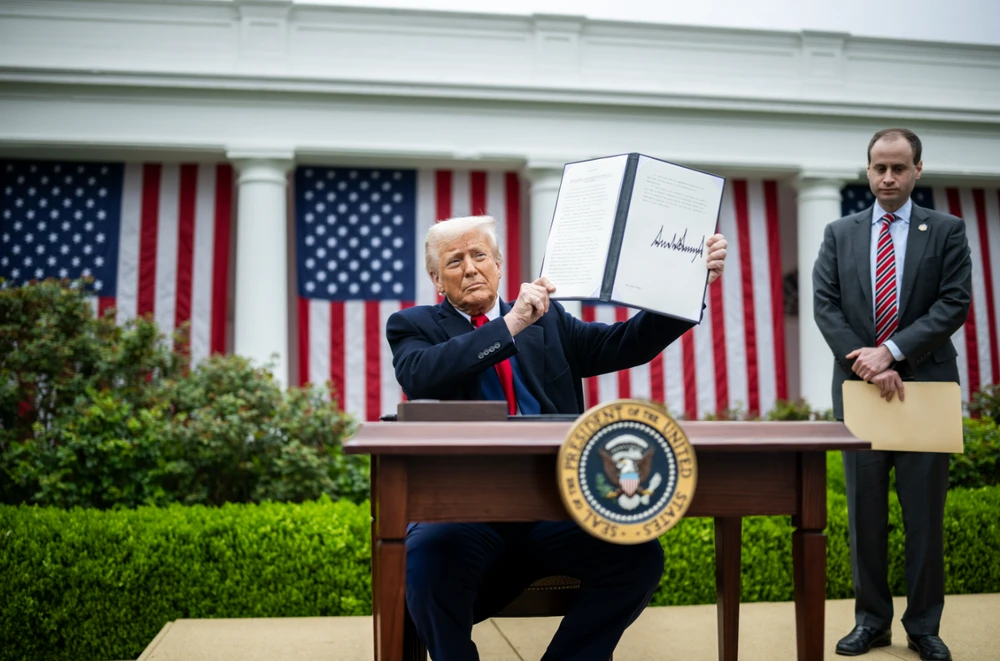
“Every trade war is about something deeper,” she said. “Money, pride, legacy — and sometimes, just someone who needs a hug.”
And with that, Munn winked at the camera, dropped the mic, and left a nation both laughing and wondering: how close to the truth was she really?
